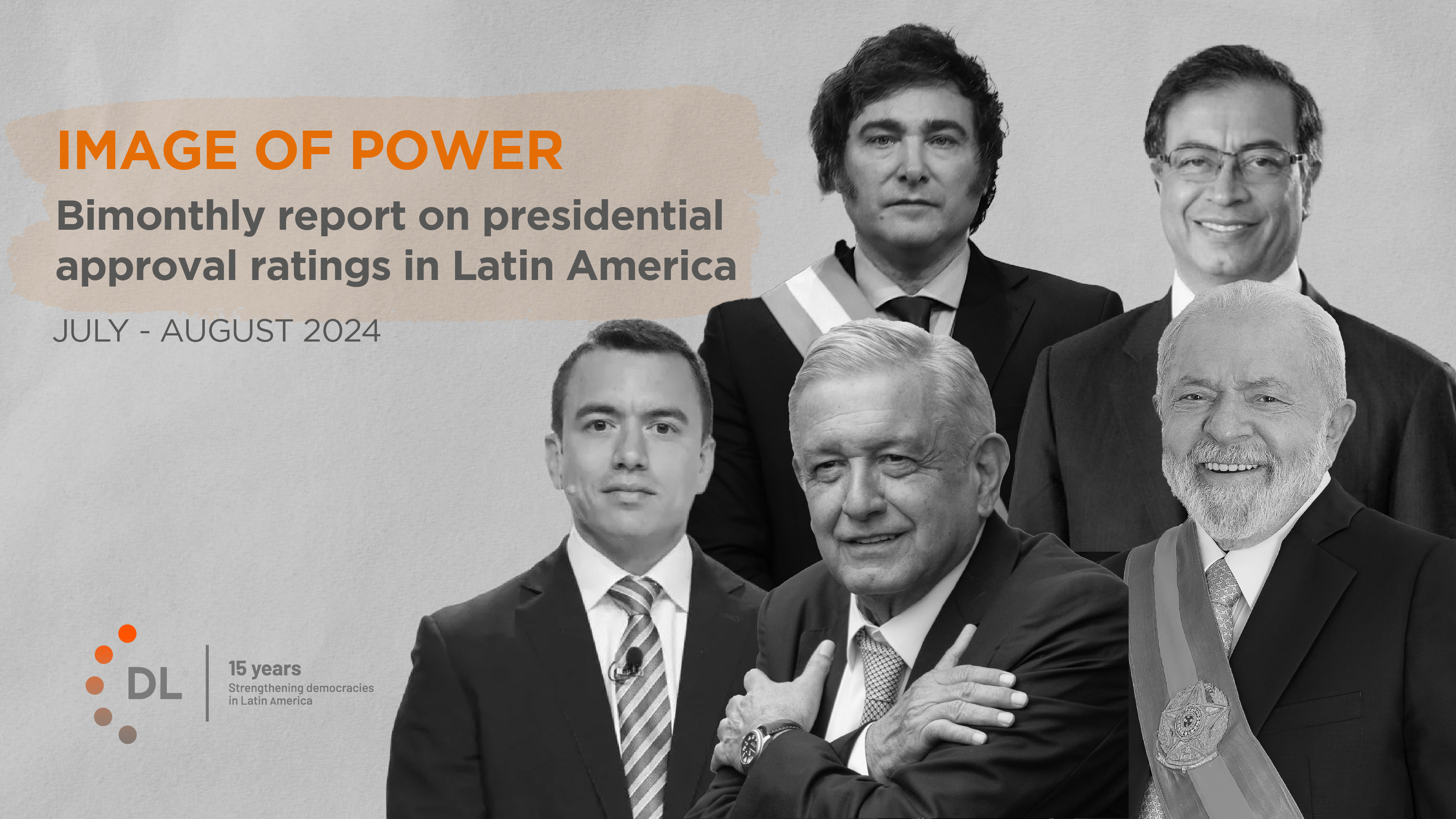With 70% approval, AMLO bids farewell to the presidency

The following is the new edition of “Image of Power”, the presidential approval monitor of Latin America created by Directorio Legislativo.
Popular support levels have remained steady over the past two months, with only Andrés Manuel López Obrador seeing a surge following the June elections. Lula Da Silva, Javier Milei, Luis Lacalle Pou, and Daniel Noboa all hover around 50% approval, while Gustavo Petro and Gabriel Boric maintain lower support at 35% and 33%, respectively.
Just weeks before leaving the presidency of Mexico, Andrés Manuel López Obrador registered a rise in his approval rating, which went from 65% to 70% in the last two months. These numbers solidify his position as the most supported president in Latin America, with a lead of approximately 20 points over other regional leaders.
Also, in Mexico, Congress was fully renewed on September 1 and approved President Andrés Manuel López Obrador’s judicial reform bill. The proposal to have judges elected by popular vote has sparked concern in the private sector and among Mexico’s USMCA partners, the United States and Canada, especially with only two years left before the treaty’s renegotiation. In response, López Obrador “paused” diplomatic relations with both nations’ embassies, a symbolic move that Claudia Sheinbaum will need to address once she takes office. The image of AMLO accelerating his agenda in his final weeks underscores his powerful, personalistic leadership, one that Sheinbaum may find difficult to replicate. Whether her strong electoral backing will protect her from the political and legal fallout of the reform remains to be seen. Her main challenge, in the eyes of the public, will be tackling insecurity.
What is happening in other countries in the region?
The July elections in Venezuela have unfolded as a crisis long in the making, sending shockwaves throughout South America. As the political landscape evolves, countries are aligning into three distinct groups: those rejecting the official results while still calling for dialogue; those decrying fraud but yet to recognize Edmundo González Urrutia as the winner; and those endorsing the opposition’s victory. We delve deeper into this in our special report.
In Colombia, the National Electoral Council continues investigating alleged illegalities in the financing of Gustavo Petro’s presidential campaign, which may include contributions from corporate entities. Petro has dismissed this as a renewed coup attempt. The third of the four legislative years began on July 20, with the president continuing to face friction with Congress. This tension is expected to persist as lawmakers debate the new financing law. Should the discussion reach a standstill, the president may resort to approving the 2025 budget by decree. A key figure in this process will likely be newly appointed Minister of the Interior, Juan Fernando Cristo, a seasoned legislator with deep knowledge of Congress.
In Brazil, Jair Bolsonaro led yet another large-scale protest, this time targeting Supreme Court Justice Alexandre de Moraes. De Moraes, who not only ordered the suspension of X (formerly Twitter) in Brazil but also spearheaded the investigations that led to Bolsonaro’s disqualification from public office for eight years, is at the center of two interconnected cases. Both seek to determine who was responsible for spreading false information about the 2021 election results and inciting the January 2022 attack on the Planalto. Bolsonaro’s demonstration of strength comes at a pivotal moment, with municipal elections looming in early October.
In Ecuador, worsening economic indicators such as rising inflation and unemployment have weakened Daniel Noboa’s standing, causing him to lose around 30 points in approval. Nonetheless, he remains a strong contender in the February 2025 elections, where he will once again face Luisa González of the Citizen Revolution Movement, led by former president Rafael Correa. Noboa’s running mate will be María José Pinto, head of the Technical Secretariat for Ecuador’s Growth Without Child Malnutrition, while Luisa González will be joined by Diego Borja, former Minister of Government under Correa. This election is shaping up to be even more fragmented than the last. By August 30, 17 candidates had already registered—10 more than in 2023. A recent poll by Comunicaliza places Noboa leading with just over 30%, followed by González at 25%, and Jan Topic of the SUMA Movement at 6%.
